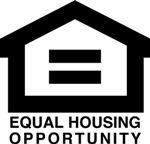Reverse Mortgage Rates
Reverse Mortgage Rates
For current reverse mortgage rates, and a personalized reverse mortgage analysis please contact me 1-888-721-6272.
There are two types of reverse mortgage interest rates. While some reverse mortgages are fixed rate reverse mortgages, most are variable rate reverse mortgages.
Fixed Rate Reverse Mortgages
Fixed rate reverse mortgages are specific to each lender, and are not based on an indexed interest rate. The advantage of a fixed rate reverse mortgage is that the interest rate is permanent, and cannot ever increase. The disadvantage of a fixed rate reverse mortgage is that often the interest rate is higher than a variable rate reverse mortgage because the lender seeks a higher interest rate upfront in return for guaranteeing that the interest rate will never increase.
Variable Rate Reverse Mortgages
The most common type of reverse mortgage is a variable rate reverse mortgage. A variable rate reverse mortgage is based an interest rate index, called LIBOR, which is the “LONDON INTER-BANK OFFERED RATE”. In order to calculate the interest rate on a variable rate reverse mortgage, a margin set by the lender is added to the index. As the LIBOR rate moves up or down then the interest rate on the reverse mortgage also moves up or down. The advantage of a variable rate reverse mortgage is that the interest rate is often significantly lower than the interest rate on a fixed rate reverse mortgage. The disadvantage of a variable rate reverse mortgage is that the interest rate can change over time. Important to remember, though is that with a reverse mortgage, there are never any payments due to the lender as long as the homeowner lives in the home.
Please contact us for the latest reverse mortgage rates 1-888-721-6272.
This material is not from HUD or FHA and has not been approved by HUD or a government agency.


